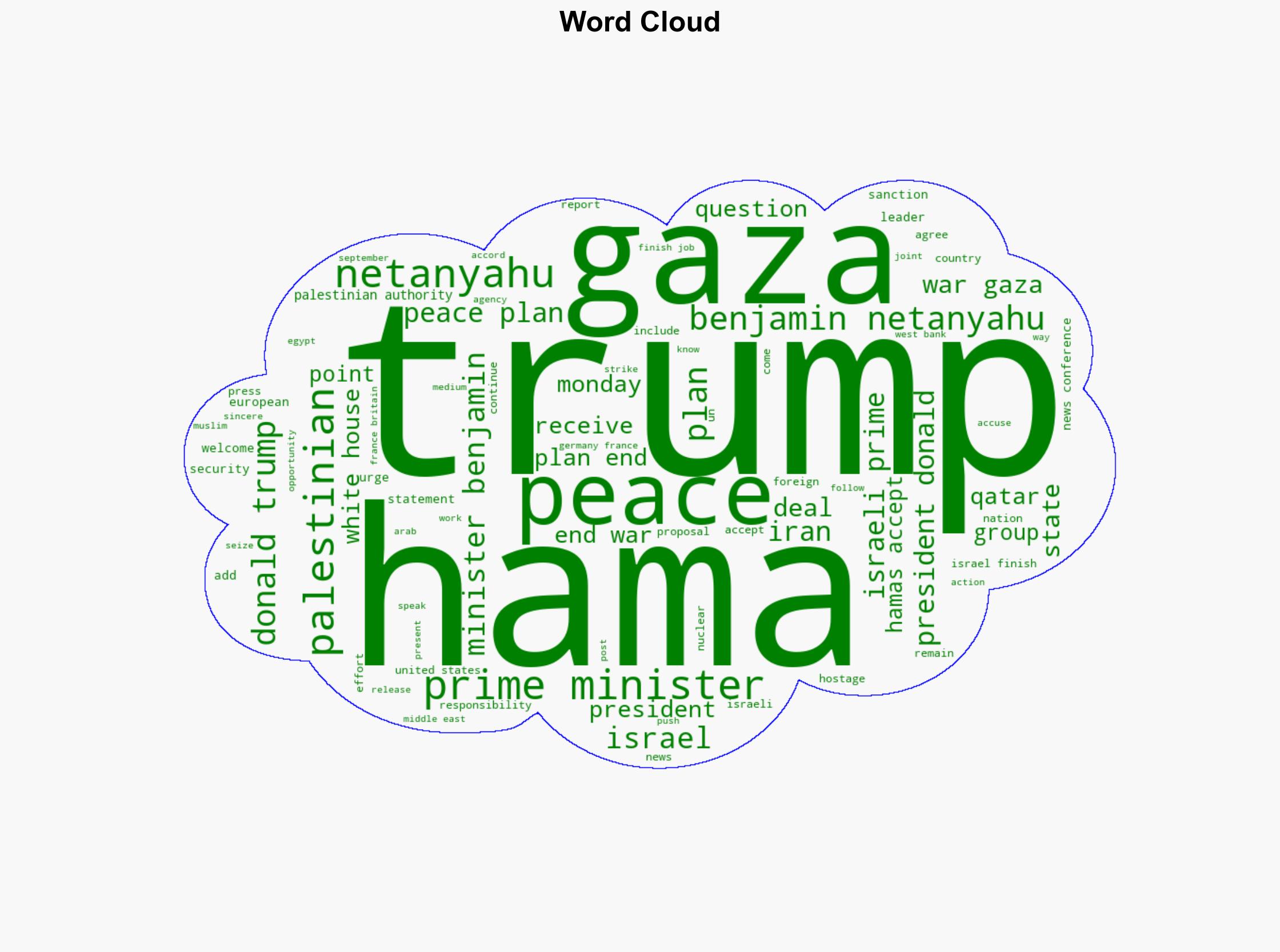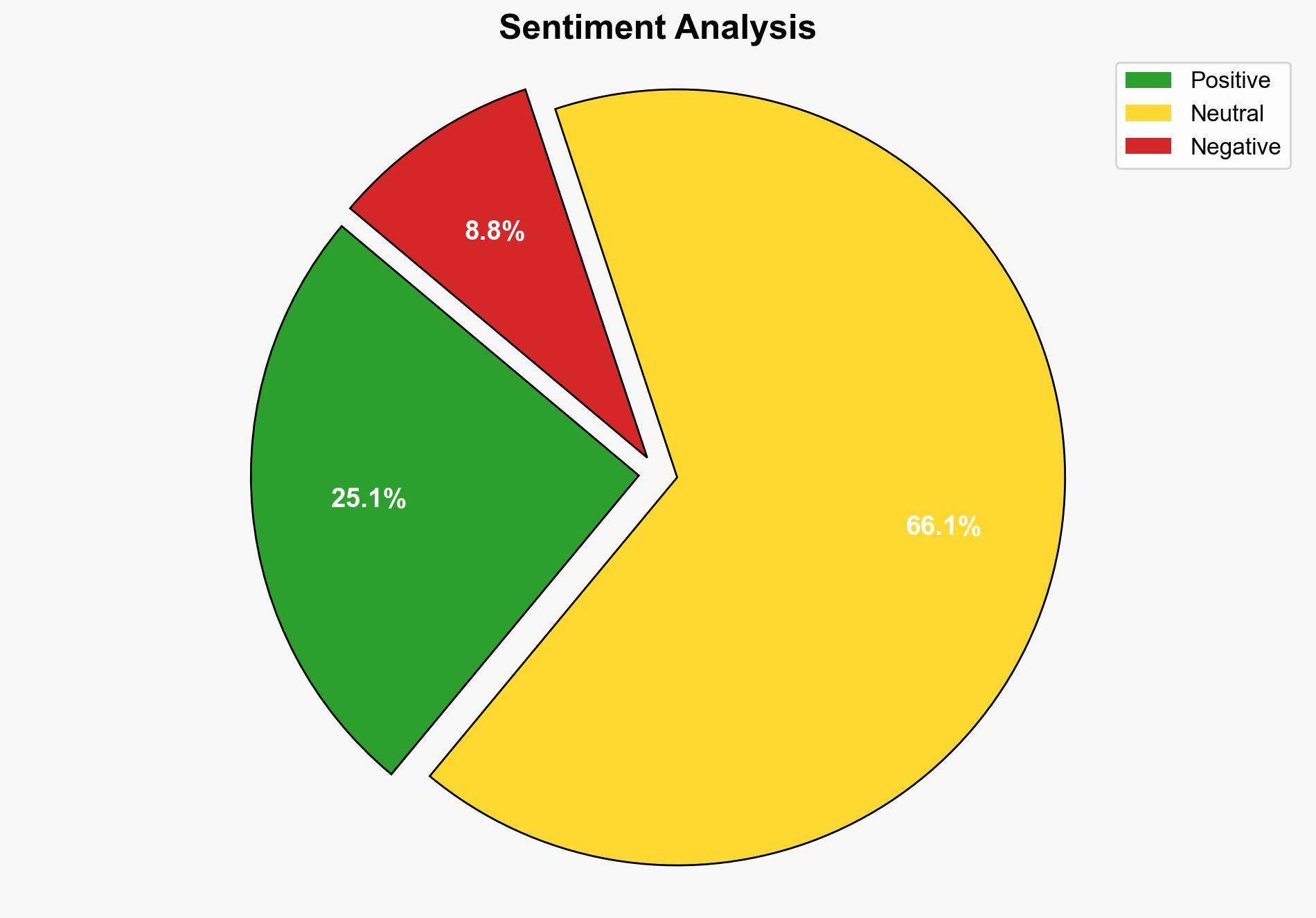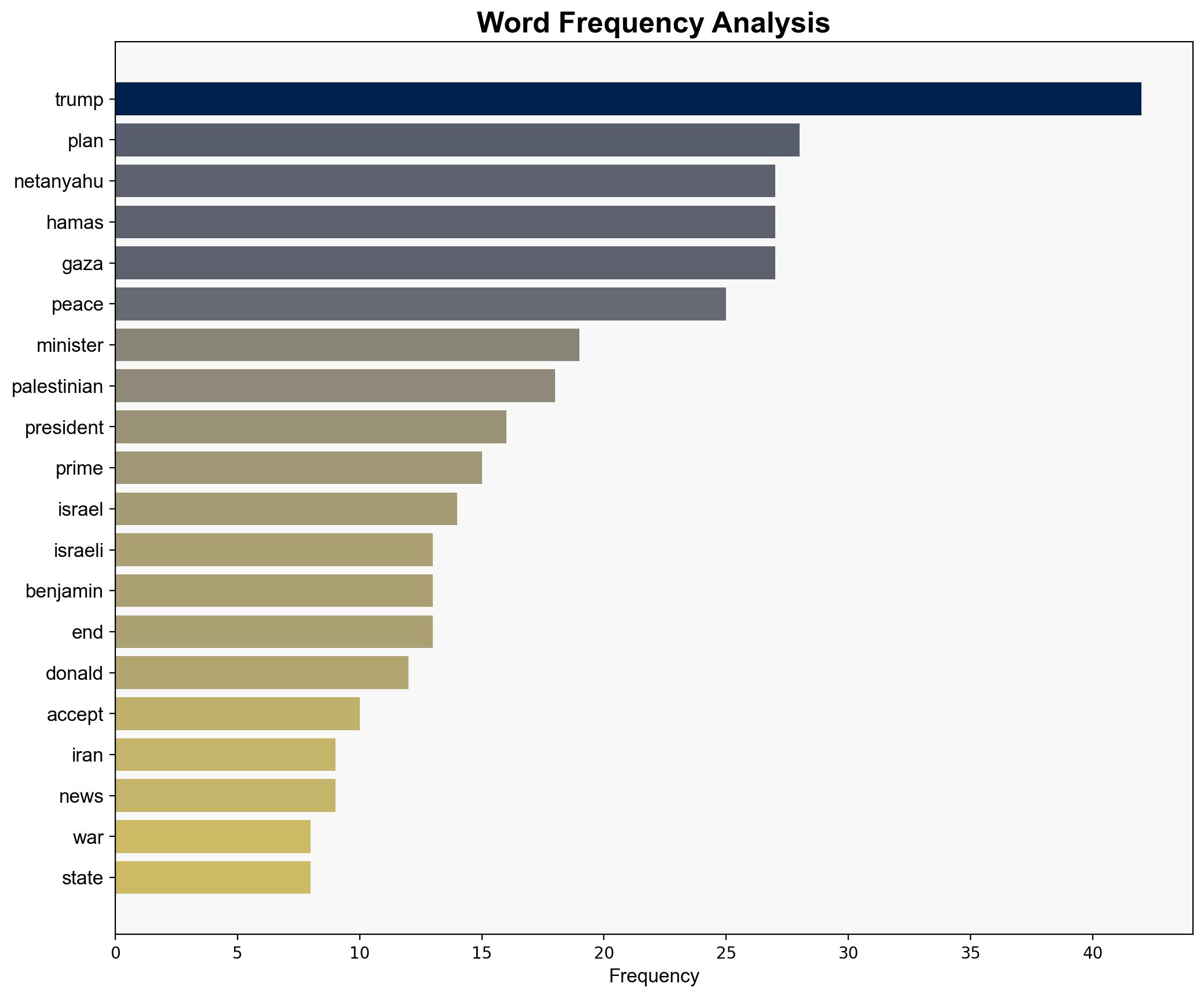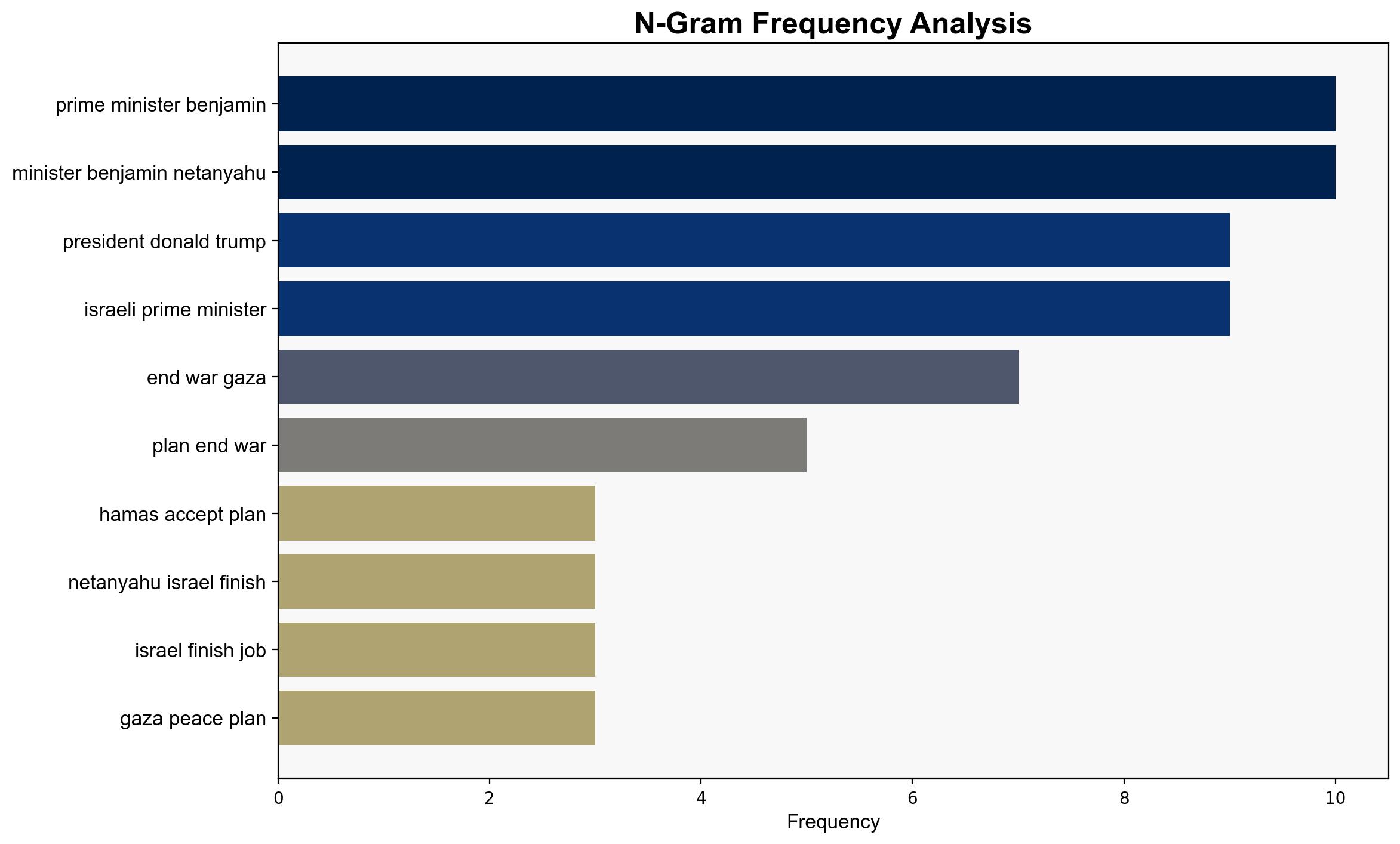Middle East Trump Netanyahu call for Hamas to accept plan – DW (English)
Published on: 2025-09-29
Intelligence Report: Middle East Trump Netanyahu call for Hamas to accept plan – DW (English)
1. BLUF (Bottom Line Up Front)
The most supported hypothesis is that the peace plan proposed by Donald Trump and Benjamin Netanyahu is unlikely to be accepted by Hamas due to ongoing military actions and demands for demilitarization. Confidence level: Moderate. Recommended action: Increase diplomatic engagement with regional stakeholders to address underlying issues and explore alternative peace frameworks.
2. Competing Hypotheses
Hypothesis 1: The peace plan will be accepted by Hamas, leading to a de-escalation in Gaza. This hypothesis is supported by international pressure and the potential benefits for Hamas, such as the rebuilding of Gaza and safe passage for its members.
Hypothesis 2: The peace plan will be rejected by Hamas, resulting in continued conflict. This is supported by Hamas’s historical resistance to demilitarization and Israel’s ongoing military actions, which may undermine trust.
Using ACH 2.0, Hypothesis 2 is better supported due to the lack of trust between parties and the absence of incentives strong enough to overcome Hamas’s strategic interests.
3. Key Assumptions and Red Flags
– Assumption: Hamas is a monolithic entity capable of making unified decisions.
– Red Flag: Ongoing Israeli military actions may be perceived as undermining the peace plan.
– Potential Bias: Overestimation of international influence on Hamas’s decision-making.
– Missing Data: Specific terms of the peace plan and Hamas’s internal deliberations.
4. Implications and Strategic Risks
– Continued conflict may lead to regional instability, affecting neighboring countries and potentially escalating into broader geopolitical tensions.
– Economic impacts include disruption of trade and humanitarian aid in Gaza.
– Cybersecurity threats may increase as groups leverage digital platforms for propaganda or attacks.
– Psychological impact on populations in the region could lead to increased radicalization.
5. Recommendations and Outlook
- Engage with regional powers, including Qatar and Turkey, to mediate and propose alternative peace frameworks.
- Encourage confidence-building measures, such as temporary ceasefires and humanitarian aid corridors.
- Scenario Projections:
- Best Case: Acceptance of the plan leads to a sustainable ceasefire and eventual peace talks.
- Worst Case: Rejection leads to intensified conflict and regional destabilization.
- Most Likely: Stalemate with intermittent skirmishes and ongoing diplomatic efforts.
6. Key Individuals and Entities
– Donald Trump
– Benjamin Netanyahu
– Emmanuel Macron
– Keir Starmer
– Georgia Meloni
– Antonio Costa
– Hamas leadership
7. Thematic Tags
national security threats, regional focus, peace negotiations, Middle East conflict





